There was a bit of an event over the weekend, that I had the honor of being a part of.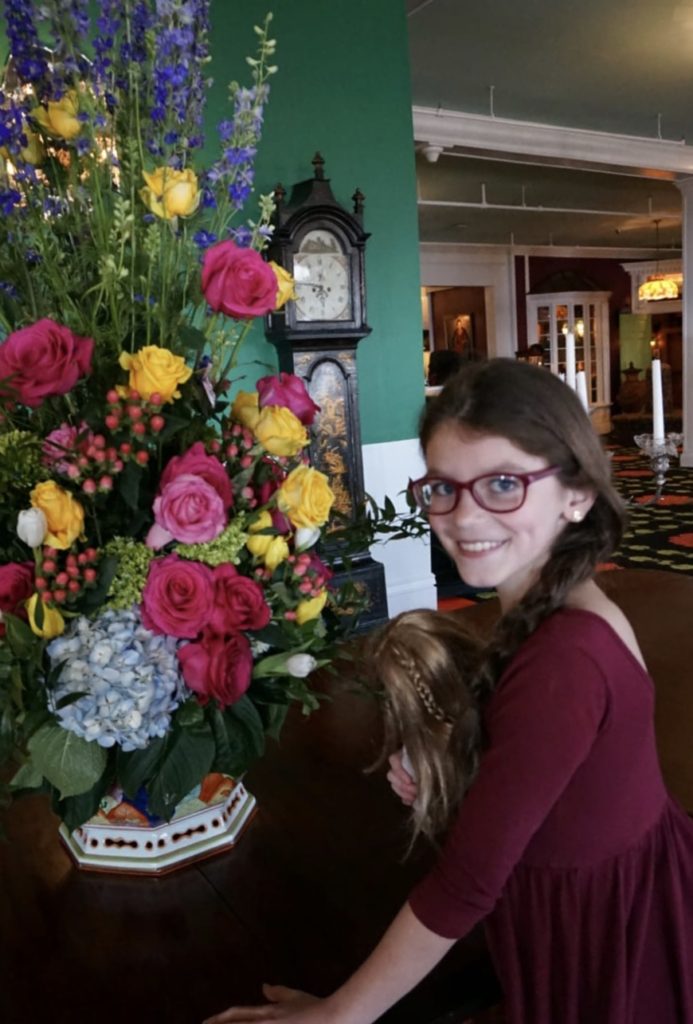
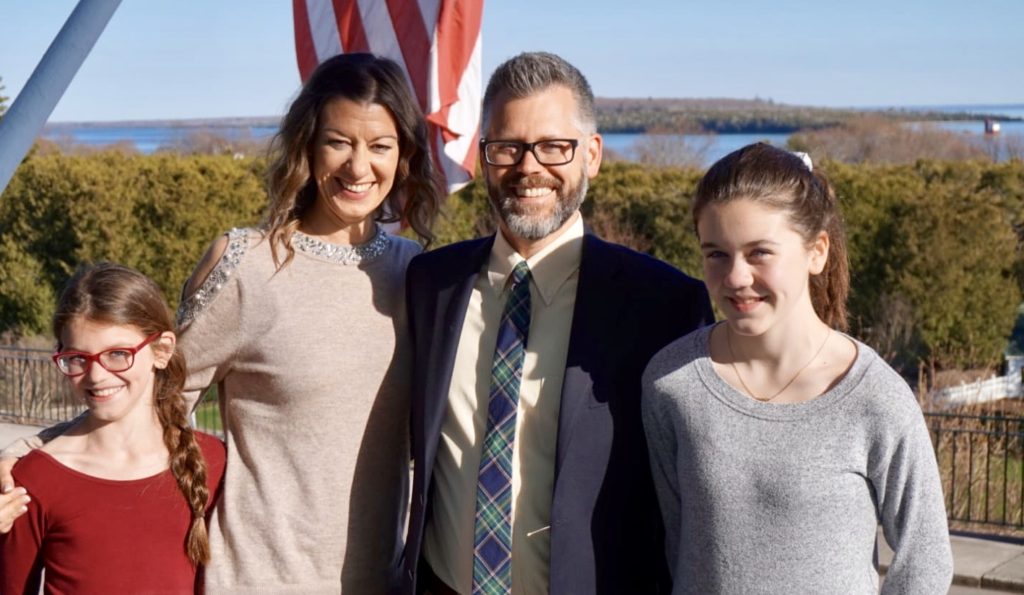
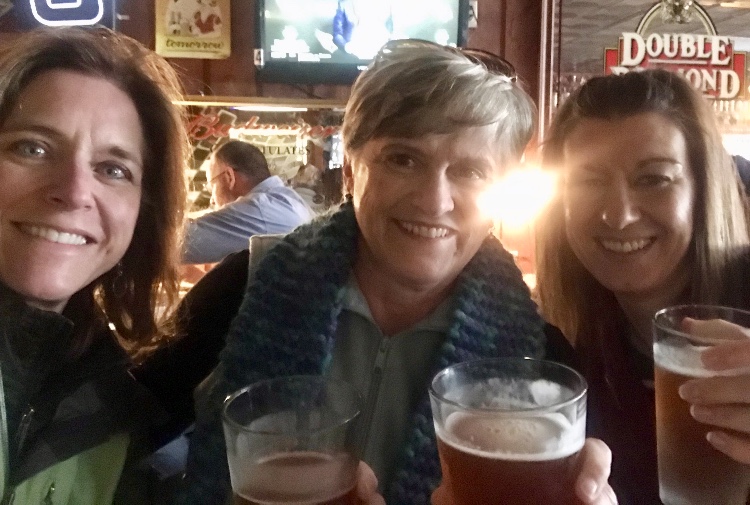

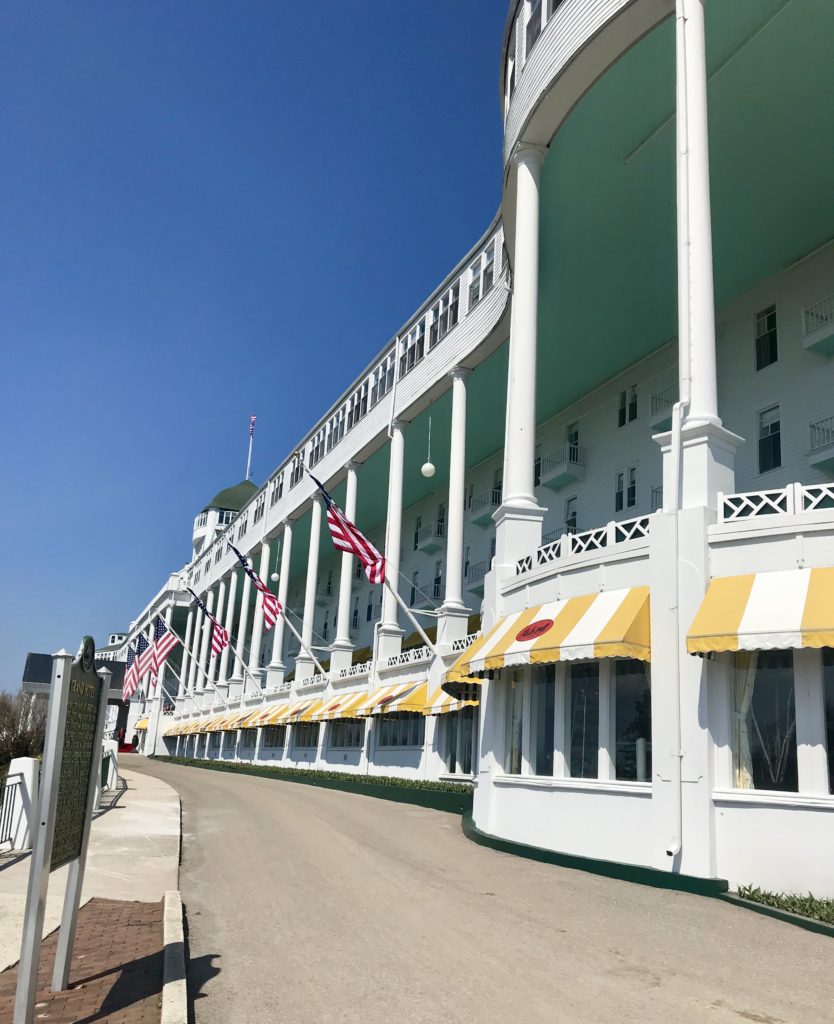
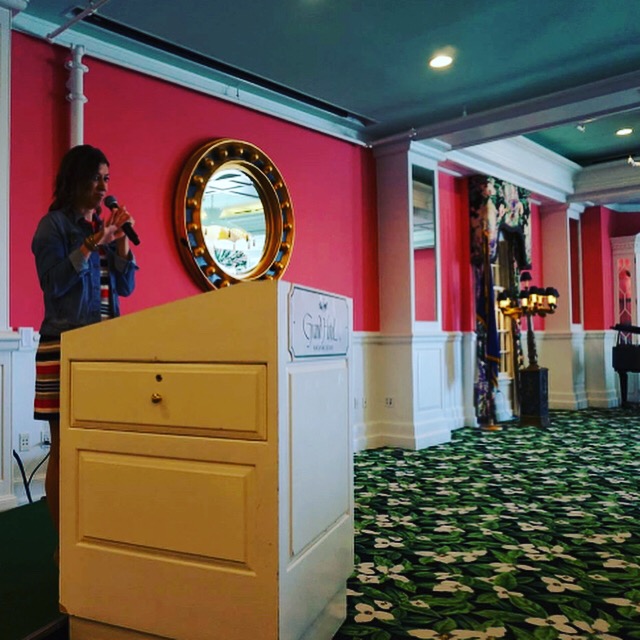
Here’s what I wrote:
On a recent visit to Raleigh, North Carolina to visit my family, my oldest daughter, Hadley, brought along a DVD of her middle school production of James and the Giant Peach, and as many of you who are grandparents probably can assume, my parents watched with rapt attention. My mom served popcorn.
“I was in my middle school play,” my dad told me quietly; a mixture of a shy and sly grin on his face.
“You were?” I said.
“I was supposed to climb the rafters back stage and hang stars during the night scenes,” he told me, still smiling. “A lady in town complained to my dad, though,” he continued.
“What was her problem?” I asked. I come from two very different Grandmothers. One was in the DAR, the other was born in Aleppo, Syria. I tend to dress like the one; I have the temper of the other.
“She told my dad that only God can hang the stars,” my dad said.
“Not adolescent boys,” I confirmed. We all know they’re good for nothin’.
My Grandpa, the Reverend Stanley Charles Lewis, was a Baptist minister. I don’t know all the nuances of the different denominations, but I did know that the Baptist’s had their list of “no-nos:” no smoking, no dancing, no drinking, no card playing, and apparently no hangings stars for your middle school play. Or so it would seem.
One of my first friends in Kindergarten was a boy named Toby, and on an afternoon when my grandparents happened to be visiting, Toby and I were coloring in my parents’ kitchen, a plate of celery sticks smothered with peanut butter between us. My Grandpa sat down with us, and before I could introduce him, my Grandpa said, “Toby! Hello!”
My Grandpa lived in New York, and we were in Chicago, and as far as I knew, this was the first time my Grandpa had even seen this boy with peanut butter on his face, and holding a red crayon mid-air. The only explanation my 5 year-old self had for this miracle was that since my Grandpa was a pastor, Jesus had given him His superpower of knowing everyone and everything.
This would not be the last time this sort of thing happened. Growing up, I learned again and again that my Grandpa knew everyone and everyone knew him. And to know my Grandpa was to love him. What’s more, to know him was to know he loved you, too.
When I was in college, once a month my Grandpa sent me $30. He never told me what to do with the money. Instead, he’d write a sentence or two about what he saw in the Finger Lakes region of New York where he lived – a cardinal frequented his backyard, the leaves were brilliant on his drive to the golf course, he hoped there wasn’t as much snow on the ground in Grand Rapids, Michigan as there was in Naples, New York.
Every month I’d spend the money on pizza. On Wednesday nights, a few minutes before 8 o’clock, Dominoes would deliver the Calvin College special to my dorm – a large pizza with one topping for $6. I’d bring that piping hot greasy deliciousness up to my room, and just as the beginning of the glorious, manufactured electric guitar cranked out the first notes of my favorite show – Beverly Hills 90210 – my friends and I would each pick a slice up excitedly waiting for the first glimpse of Dylan McKay, though nobody loved him as much as I, as displayed by the shrine of posters that decorated my side of the dorm room.
My Grandpa knew this. Well, he didn’t know about my irrational albeit hefty crush on Luke Perry (some things a granddaughter has to keep to herself), but he knew about the Wednesday night pizzas, and the 90210 viewing with my friends because I told him. Each month, I’d write him a note back, thanking him for the money, and a sentence or two about what was happening at Calvin – I’d found a nice carol in the library next to a window, as my dad told me to do. (“Don’t study in your dorm, Callie,” he’d said just before he left me there. “That’s for fun.”)
I wrote to tell him that on days I had a lot of writing to do, I’d go to the carol with a giant bag of gummy bears and what I liked to call a “Poor Man’s Mocha” from the snack shop. For .55 cents I filled up a giant reusable mug half with coffee and half with hot chocolate. I told him that meal sustained me as I trudged through the Heidelberg Catechism, Flannery O’Connor, and Mary Wollstonecraft Shelley. I’d tell him I didn’t mind writing so much – that with the right pen and pretty notebook, it wasn’t so bad.
On a late November day, with a sparkling diamond ring on my finger, I wrote to tell my Grandpa that Jesse and I were engaged and would he please do us the honor of officiating the ceremony. He said he would and on a sunny January afternoon, under white banners at the Calvin College Chapel, just as Calvin College sunk its last hoop to beat Hope 74-56, Jesse and I were married.
A few months before that though, my Grandpa took Jesse and I out for fries and Cokes and talked to us about our vows. He shared some of his dogged-eared books with his notes in the margins, thumbed over familiar phrases like, “until death do us part,” and “in sickness and in health,” and pointed out a promise he thought Jesse and I ought to consider making to one another. That is, to help each other find what it is we are good at, and encourage each other to pursue and develop that gift. Something about that promise seemed a little more mysterious and complicated than the others I’d heard growing up. But it felt like an adventure too, and so Jesse and I took that one on, and my Grandpa helped us say it 20 years ago.
The letters didn’t stop after I became, “Mrs. Jesse Feyen,” as my Grandpa liked to address the envelopes. Grandpa,I’d mutter to myself as I opened the envelope, get with the times.Inside though, he asked about Jesse’s graduate work and his trips to New Orleans to talk with people about hurricane storm surge and its effects on the land. Though he never wrote “Jesus” or “calling,” I could tell he thought of Jesse’s work as a testimony to God – His people and His world. The way my Grandpa wrote, I could tell he believed Jesse was using what good he had in him to take care of others.
My Grandpa wrote the same way to me about my work. Before I even admitted it to myself that maybe I’d like to write, he asked me if I’d ever consider going back to school for an MFA. That note came around Harper’s 3rdbirthday. He’d sent her a card with Diego and Baby Jaguar on it – Harper’s two favorite TV show characters at the time. Clenching my note and watching Harper smile at hers, I thought, How did he know?
//
In her book, Still: Thoughts on a Mid-Faith Crisis, Lauren Winner writes about a young girl in church on a day when she is going to be confirmed. Moments before it happens though, the girl tells her father, a minister, she’s unsure she can go through with it because she doesn’t think she believes it all. Her father tells her that what she’s promising when she’s confirmed is not that she’ll believe it all, but that she’ll stay with and in these stories. She will wrestle with them, seeing them in new and different ways as she grows and changes, looking for God who hung the stars or made it so His children had a chance to do it – His invisible hand present in His people.
Sarah Arthur writes about the sacred act of reading and wandering around in a story as well. In her book, Still Point: A Literary Guide to Prayer in Ordinary Time, Arthur writes about the power stories have over our lives: “On a quiet evening, curled up with a good story, we have encountered the memorable character, the articulate phrase, the evocative image, the small suggestion, the smuggled truth, the small shattering epiphany, which changed us, and we weren’t even looking to be changed. It enriched our lives, and we didn’t even know our own poverty, we were not the same people after ward.”
This idea that stories change us even when we weren’t looking to be changed could be why the young girl on the brink of confirmation was having second thoughts. It is unsettling to be changed. Changing disturbs us, and yet every Sunday we return, each step we take towards the pew is filled with hope and doubt, joy and sadness and lots of times it’s hard to tell the difference. It’s an exhausting promise, to return to a story, unsure of what it will do to us – whether we limp like Jacob or pick up our mat and walk – either way we are marked.
I am in a group in church that meets each Sunday after the 11 o’clock service. Our job is not a social one, we have business to take care of, plus, it’s Sunday and we all want to get home to our lunches, our families, our Sunday things. We’ve been meeting since February, though, and while I’m sure none of us wants this to go on longer than it has to, I think it’s safe to say we enjoy each other’s company. It’s nice to laugh with them, to discuss work and the weather. Sometimes bits of stories slip out – an accidental on purpose spoonful of rainbow sprinkles on an ice-cream cone – and all of us eagerly oblige the storyteller. And maybe it’s not exactly like prayer, but it has become an unsaid sort of sporadic ritual, and like prayer, I believe these shared snippets of our lives bring us together.
On Palm Sunday, before we began our business, we discussed the service – the Children’s Moment, the sermon, the music. Several of us shared in the relief we felt that Reverend Sanderford took us through “the glimmering sadness” of this day – that even though we walk with palms in anticipation of welcoming and praising Christ, that we declare our love for the savior we think we know, or the one we believe we have defined because he suits what we want, what we are comfortable with, we know those fronds will become next Lent’s Wednesday ashes, and this parade leads to the cross and we will forever be haunted by a love so wonderful that all we can do is walk through the story again.
That afternoon someone mentioned a father that recently died. Another mentioned a sister. One mentioned a spouse.
“This week will be powerful,” one of us said, referring both to Holy Week and the losses that, whether they just happened or not, spring fresh when we hear again:
“Stay with me, remain here with me, watch and pray.”
“If it is possible, let this cup pass from me.”
Then, “Thy will be done.”
And finally, “It is finished.”
I believe a loosening happens when we return again to a story – it is a sort of communion, I think, taking the stories of our lives and holding them up to God’s and what it is He’s offered us. I believe it comes from a willingness to return, to look again, to experience again. It’s OK that we don’t know everything or believe everything about God, about these stories, about ourselves. Perhaps the promise to return and look again and wonder is what it means to confirm one’s faith.
//
My mom and dad haven’t been in Raleigh long. Maybe three years. I am still getting used to the fact that I will literally never go home again, and so I have a little (or a large) prejudice against their new place. It doesn’t smell like my home on Gunderson. I can’t hear the “el” like I used to. There are no creaky wood floors, no squirrels running alongside my bedroom window on the telephone lines. I don’t know if my family notices or not, but I’m usually in a funk when we visit, wishing that instead of the pink and white pedals from the magnolia and dogwood trees, I saw the Chicago skyline.
This is not their fault or their problem – it is something I must work out for myself, and so despite my ache for a home that once was, I return to Raleigh looking for the home that is.
There is an old railway station that turned itself into a hardware and greenery store. We walk there and eat grilled cheese sandwiches and tomato soup and sit where the trains used to come, and chuckle at the plants growing out of cowboy boots that are for sale. There’s a pharmacy that’s also a café down the street from where they live. You can get your Motrin and also a cup of coffee or a beer, sit and read a book or play a game of Checkers.
There’s a beer store that my dad frequents regularly and after a few conversations learned that the owners of the place are old friends of a friend I had in Maryland. She’s a mother I used to carpool with because our children went to the same school. One boy, Luke, was Harper’s first friend – a giggly little boy whose favorite color – blue – was the same as Harper’s. Who sometimes brought his favorite stuffed animal in the car with him on days Harper brought hers, and together, they’d leap out of the car towards school knowing their stuffed animals would keep each other company like good friends do when we’re away from home.
“Oh, sure,” my dad said when he was exchanging pleasantries with the beer store owners. “I know Luke.”
//
I would have loved to be a witness to the conversation between my Grandpa and the woman who was concerned about who ought to hang the nighttime stars. I imagine it happened after a church service, in the greeting line while my Grandpa shook hands with his congregants.
“Do you know Jonathan’s in the school play?” I picture this woman beginning. “And do you know what he’s doing in that play?”
I imagine my Grandma was standing with him, and wearing something pastel, with heels and a purse to match. Her nails painted a rosy pink, and maybe she wore the ring I have on today, the one my dad saved for me after she died.
She made my dad copy poetry in a notebook even when it wasn’t assigned for homework because she wanted him to learn what words could do. I bet when this woman confronted my Grandpa, my Grandma was proud of her son because she knew he learned what she hoped he would about words, and more, now wanted to be a part of the story. I bet she wanted to put a hand on her hip, step toward this woman and give her a piece of her mind. I know she didn’t, though. That wasn’t her style.
I don’t know anything more about this memory than what my dad told me. A few moments after he’d shared it, my two nephews and niece walked through the door ready to go to the park, and my dad, being the grandpa that he is, was ready to take them.
I meant to find out more, but with five grandchildren, there is a lot more to pay attention to, a lot more to concern oneself with – the importance of the right color Nike swoosh for one’s shoes this season, the difference between a plié and a pirouette, the magic of a school bus and Tiyana the princess, the sound of a dump truck.
That’s fine with me, not knowing the rest of the story. I know enough about my Grandpa to know my dad hung those stars.

Leave a Reply